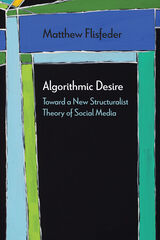Paper: 978-1-4399-1035-1 | Cloth: 978-1-4399-1034-4 | eISBN: 978-1-4399-1036-8
Library of Congress Classification HM742.G44 2014
Dewey Decimal Classification 302.3
Robert Gehl's timely critique, Reverse Engineering Social Media, rigorously analyzes the ideas of social media and software engineers, using these ideas to find contradictions and fissures beneath the surfaces of glossy sites such as Facebook, Google, and Twitter.
Gehl adeptly uses a mix of software studies, science and technology studies, and political economy to reveal the histories and contexts of these social media sites. Looking backward at divisions of labor and the process of user labor, he provides case studies that illustrate how binary "Like" consumer choices hide surveillance systems that rely on users to build content for site owners who make money selling user data, and that promote a culture of anxiety and immediacy over depth.
Reverse Engineering Social Media also presents ways out of this paradox, illustrating how activists, academics, and users change social media for the better by building alternatives to the dominant social media sites.
See other books on: Human-Computer Interaction (HCI) | Online social networks | Political Economy | Social media | Software
See other titles from Temple University Press


























